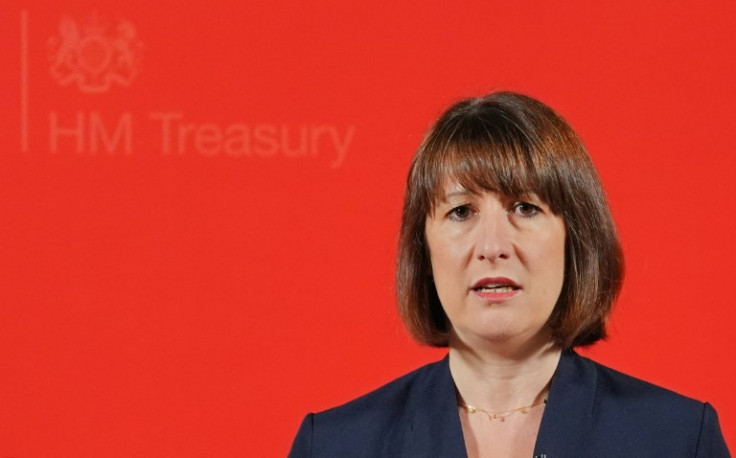Rise In UK Borrowing Narrows Budget Options For New Govt

UK government borrowing jumped by far more than expected in July, official figures showed Wednesday, stoking fresh anxiety for the new Labour government ahead of its first budget in just over two months.
Finance minister Rachel Reeves has already warned of "difficult decisions" over whether to cut spending or hike taxes on October 30, and the latest numbers will do little to ease those concerns.
Public sector net borrowing reached GBP3.1 billion ($4 billion) last month, the highest July figure since 2021 and well above expectations, the Office for National Statistics (ONS) said.
The finances suffered from "a rise in central government spending" as "the cost of public services and benefits continued to rise," said Jessica Barnaby, the ONS deputy director for public sector finances.
Since early April -- the start of the UK tax year -- the country has borrowed almost GBP5 billion more than projected by the Office for Budget Responsibility (OBR) watchdog.
Public debt -- which has neared 100 percent of gross domestic product (GDP) for several months, primarily due to support dating back to the pandemic and energy crisis -- stood at 99.4 percent of GDP in late July.
Chief Secretary to the Treasury Darren Jones said the figures were "yet more proof of the dire inheritance left to us by the previous government".
"We are taking the tough decisions that are needed to fix the foundations of our economy, modernise our public services and rebuild Britain," he added.
Dennis Tatarkov, senior economist at KPMG UK, said the higher borrowing "leaves little headroom" ahead of the budget.
"An expected slowing in GDP growth ahead could limit revenues in the second half of the year," he cautioned.
Reeves last month announced the public finances face an extra GBP22-billion hole inherited from the previous Conservative administration.
The Tories promptly rejected the claim, alleging the new government was using the fiscal assessment to lay the ground for tax hikes.
Labour has insisted for months that it will not raise taxes on "working people".
But in her July 29 parliamentary statement detailing the state of the public finances, Reeves announced she was cancelling or postponing road and hospital building projects and restricting winter fuel payments to only the poorest pensioners.
Further such measures are expected when she unveils her maiden budget.
The Financial Times reported Wednesday that Reeves plans to tweak the formula used to determine rent levels for subsidised social housing to allow for above-inflation rises, in a bid to boost affordable housebuilding.
However, it would hit tenants already struggling with the UK's years-long cost-of-living crisis.
Polly Neate, the head of housing charity Shelter, warned any changes must include mechanisms to prevent "extreme rent rises" if inflation spikes again.
UK inflation hit a four-decade high of 11.1 percent in October 2022, but has dropped to around two percent in recent months following a series of interest-rate hikes by the Bank of England.
The Guardian said Wednesday the finance ministry was alarmed that modest UK economic growth since the country exited a mild recession late last year had failed to improve the public finances.
The newspaper added officials were exploring hiking inheritance and capital gains taxes as possible revenue-raising measures, while looking at maintaining slight spending increases that would still require cuts to some government departments.
It noted Prime Minister Keir Starmer's new government was still unwilling to scrap a contentious cap on benefits for families with more than two children.
The so-called two-child benefit cap, criticised by child poverty campaigners and hated by left-wingers, is estimated to save the government GBP2.5 billion this tax year.
© Copyright AFP 2025. All rights reserved.





















